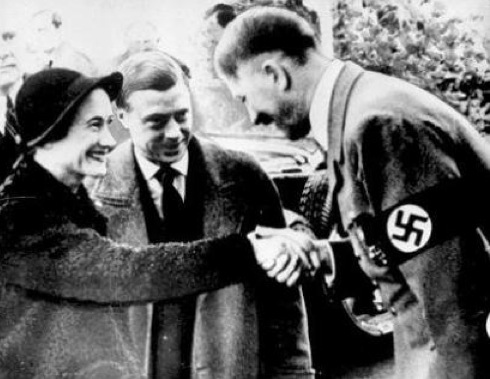Coco Chanel and Accountability

Photo Courtesy of Messy Messy Chic
May 4, 2021
Chanel. Almost everyone knows the name of the famed designer known for her incredibly successful luxury fashion empire. However, there’s a much darker side to her rise to the top, one that involves the nazi party. Born in poverty in the french countryside, Gabrielle “Coco” Chanel was sent away to live at a catholic orphanage Congregation of the Sacred Heart Mary at age 12. It was there that she became a seamstress. She started singing on stage, where she was soon introduced to the lifestyle of luxury her brand is now known for. With help from her rich lovers, she launched a successful hat business that grew astronomically, leading her to develop her famed scent, Chanel No. 5.
So where do the nazi’s fit into such an icon’s rise to the top? Well, Baron Hans Günther von Dincklage, a german spy who was one of Hitler’s confidants, started a relationship with Coco Chanel. The two lived together at The Ritz Hotel, which soon doubled as German headquarters. Chanel and Von Dincklage’s relationship is fairly well-documented, but her collaborations with the Nazi party don’t stop there. She was a secret agent, and even had her own code name and number. She was known as “Westminster” or Agent F-724. But why is this important now?
After a tumultuous year filled with incredible social upheaval, the Black Lives Matter movement, COVID-19 pandemic, the presidential election and the capitol inserection have made us have to re-examine the lens in which we look at history with. Coco Chanel is no doubt a famous icon, but with her rocky history and obvious antisemetic views, is she truly a figure that should be glamorized? While her work was the catalyst for a revolution in the fashion industry, the failure to confront her past is simply turning a blind eye to the many injustuces the Nazi’s caused. The 2020 Parisian retrospective of Coco Chanel’s work, “Gabrille Chanel. Fashion Manifesto,” demonstrates the world’s ability to turn a blind eye to a downright wrong. The exhibit made little mention of Chanel’s Nazi ties, instead shifting the focus back to her work. While it’s important to appreciate Chanel’s enormous contribution to the fashion industry, accountability should also be a part of sharing her story. Chanel’s designs were largely influenced by her right-wing ideology, championing minimalism and austerity, creating the typical “white european,” style.
Sleeping with the Enemy, the 2011 book about Chanel’s nazi involvement was dismissed by the company as an inaccurate “speculation” of Gabrielle’s WWII action. Because Chanel remains such a big powerhouse and influence on the fashion industry, it’s important to be aware of it’s darker past. The dismissal of such an exposing book definitely reflects people’s blatant ignorance towards the consequences of historical oppression, specifically the anti-semetism that acted as a catalyst of the Holocaust and World War 2. Since then, Chanel has made a more public effort to acknowledge the actions of its creator.
The past year has been one of radical change and social upheaval, and continues to be plagued by racial tension and outright hate, especially in light of increased violence towards the asain community, spikes in antisemitism, and ongoing gun violence and police brutality. Because of this, a necessary shift in society’s moral obligation to call out intolerance has started to shape a new culture based on holding each other accountable. While this channels a new change in how we, as a society, can champion equity and equality, it also means that the responsibility falls upon us to educate ourselves. While acknowledging the darker sides of history may be uncomfortable for some, it’s vital in educating ourselves about intolerance to prevent events like Holocaust from happening and instead create a culture revolving around tolerence, diversity and openmindedness. Coco Chanel’s fierce determination and desire for success changed the face of fashion and femininity. However, her not-so-secret Nazi connections reveal how intolerence gives the ignorant the ability to profit off of oppression and downright evil. While we can still appreciate and admire the creativity, drive and skill it took Chanel to create a lasting empire, we cannot glamorize a person who benefited off of the oppression and deaths of millions of Jews, Eastern Europeans, Roma, and LGBTQ+ people in the name of “racial purity.”
While we don’t have to “cancel” the brand, acknowledging Coco Chanel’s wrongdoings opens up the opportunity to educate ourselves and others on the importance of education aimed at creating a better future for everyone.